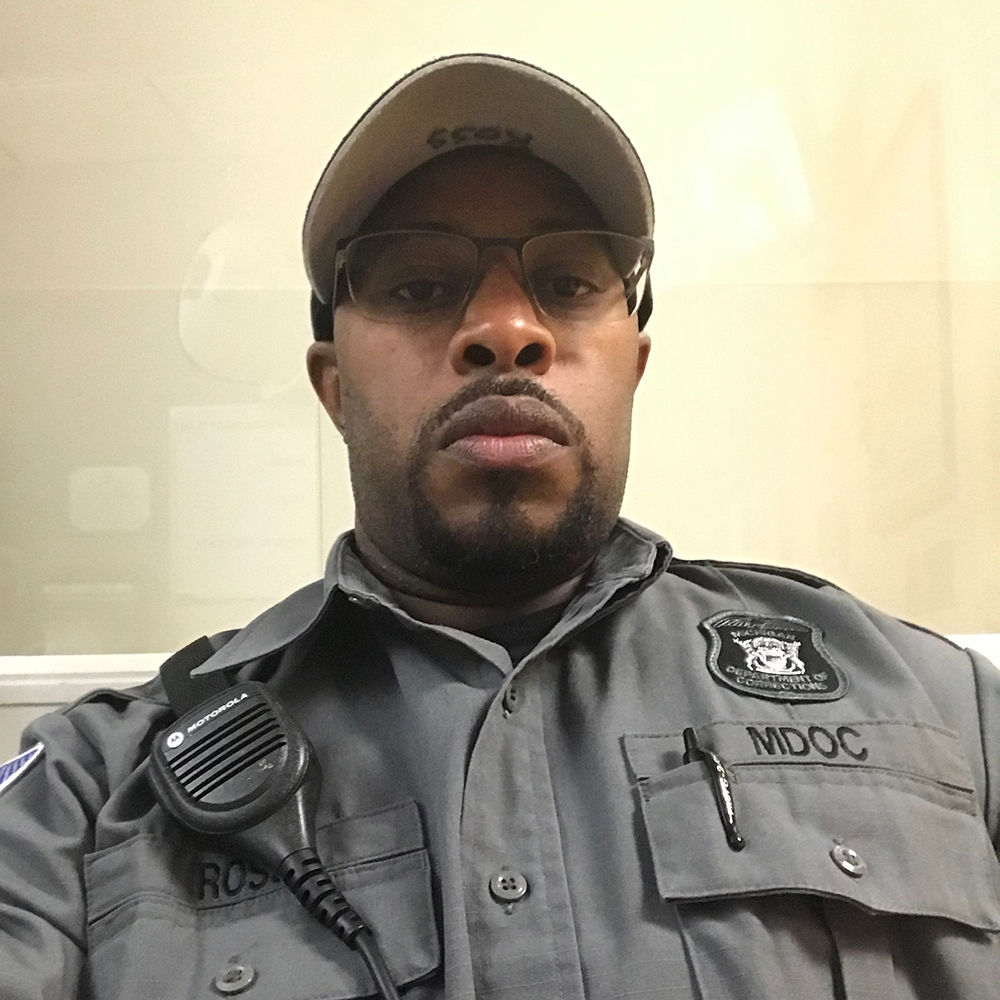Cooper Street officer opens up about how he survived COVID-19
A Cooper Street officer made a miraculous recovery from COVID-19 last month.
“I was OK, then it got worse. Next thing I remember, I woke up in the hospital and the ventilator was coming off,” Jermaine Ross said.
Less than two months ago, Ross was a 40-year-old father of two who loved to run and work out. He had a few pre-existing conditions but was managing them well through diet and exercise.
Then COVID hit Cooper Street. There were many cases in D-unit, where Ross was assigned. He was sent on a hospital run Nov. 17 and was mandated to work 16 hours that day. Ross said he was exhausted at the end of day, but thought it was just from work. He took a routine COVID test the next day, and a couple of days later, received a positive result.
“I did everything right,” Ross said. “Wore my mask, washed my hands, social distanced. And I still got it.”
He quarantined himself in his basement. At first, he felt OK. Then some symptoms set in: headache, muscle aches. On Thanksgiving Day, he couldn’t keep anything down. He went to the hospital and was discharged after a day.
Ross said he started feeling a little better once he got home. On Dec. 5, he was done with his quarantine and decided to clean out his car.
He went downstairs but didn’t make it out of the house when fatigue hit him hard. Mrs. Ross said he came inside and told her he couldn’t breathe.
His oxygen meter read 48, which is dangerously low. Their son called 911.
Jermaine had a saddle blood clot, which is a clot that blocks the main artery to the heart running between the lungs. His heart stopped a few times, but ER staff performed CPR on him for 20 minutes and resuscitated him. A nurse told him he had “the largest blood clot she’d ever seen on a living person.”
After the close call in the ER, Jermaine was placed in a medically-induced coma with a ventilator for seven days. Miraculously, when the vent was removed on Dec. 11, he was able to breathe on his own.
Jermaine has a long way to go before he’s back to running. He gets drained walking around the house and is using a walker. Recovering has been tough, but the Rosses said they’re grateful he’s alive. They credit the medical staff at McLaren Hospital, and are especially thankful for the ER staff that wouldn’t give up on him when his heart flatlined. “I know prayer helped,” Mrs. Ross said.
COVID patients are prone to blood clots, Jermaine said, but no one outside of the medical community talks about it.
Jermaine’ advice to those who test positive is to rest and pay attention to what your body might be telling you.
“Even if you have mild symptoms, pay attention to the small signs, because that’s what people ignore,” he said.
The oxygen meter also played a role in saving Jermaine’s life. It alerted the Rosses to a serious oxygen deficiency that went far beyond normal exhaustion. Mrs. Ross also said staying hydrated and making sure you are getting enough vitamins and minerals helps.
They’re grateful for family and friends – like MCO members and staff, Warden Floyd, neighbors, and others – who made sure they didn’t go through this alone.
“The outpouring of support has been overwhelming, in a good way,” Jermaine said.
As of Jan. 14, more than 3,000 MDOC staff – about 25 percent – have contracted COVID-19. At least four staff have died. More information is at https://medium.com/@MichiganDOC/mdoc-takes-steps-to-prevent-spread-of-coronavirus-covid-19-250f43144337
MCO leaders and staff thank all officers, FSAs, ARU investigators, and all members for their extraordinary sacrifices during this pandemic. Stay safe and well.
